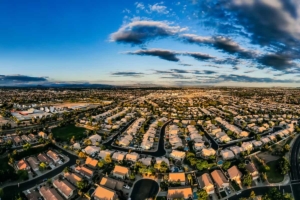With the strange changes in the climate, being able to control water on your property is becoming more critical. Unfortunately, you can’t predict when a flood can happen, but you can ensure that your property is safe from potential water damage. Here are some tips on preventing water issues.
Learn more about your location
When it comes to water management, an excellent first move would be to do some research about your property. Depending on how long you have been in a location, you likely only know a fraction of what you need to know about your property’s water history. It would help if you researched past flooding, local water levels, soil conditions, and more. Water management is not just about draining water from your property either. Moreover, ensure that you are prepared for times when there is insufficient water. Your tenants will appreciate that during harsh summers.
Channel the water in the right direction
Once you’re familiar with the conditions of your property, it is time to install ways to drain and channel water away from the essential areas. There are several ways to do so. For example, you can click here to see retaining wall systems that you can use as water barriers. If they are in the right place, they can channel water from the central part of your property. Adding drainage ditches and pipes can also ensure that no standing water stays on your property to ruin it.
Integrate them into your property properly
There are two ways to handle excess water. One is to channel it out of your property completely. Using sewage lines and convenient ditches, you can keep your place unflooded. However, a more exciting approach is to use the water. Add water features that absorb excess rainwater so it can drain away slowly and naturally into the soil. Besides making your property look better, they can also help the environment by filtering water back into the water table. You can use water on your property with rainwater harvesting, too. Have cisterns or tanks receive rainwater for later use. With proper filtering, the water can be helpful for various purposes.
Aim for zero water waste
Water management also means saving water. First, change your outdoor areas to use the minimum amount of water to maintain. For example, switch to local plants that match the temperature so they have the adaptations necessary to survive with the amount of water in the environment. You can also use efficient sprinkler systems to ensure you don’t waste water. Additionally, you can install various systems in your building, like low-pressure faucets and more, to control the water usage on your property. Finally, it would help if you had leak detectors as part of your setup to prevent water loss because of leaks.
Final thoughts
Water management may not be very thrilling, but it is crucial if you want to be efficient with resources while keeping your property safe. It will also make things much easier for you and your tenants.




